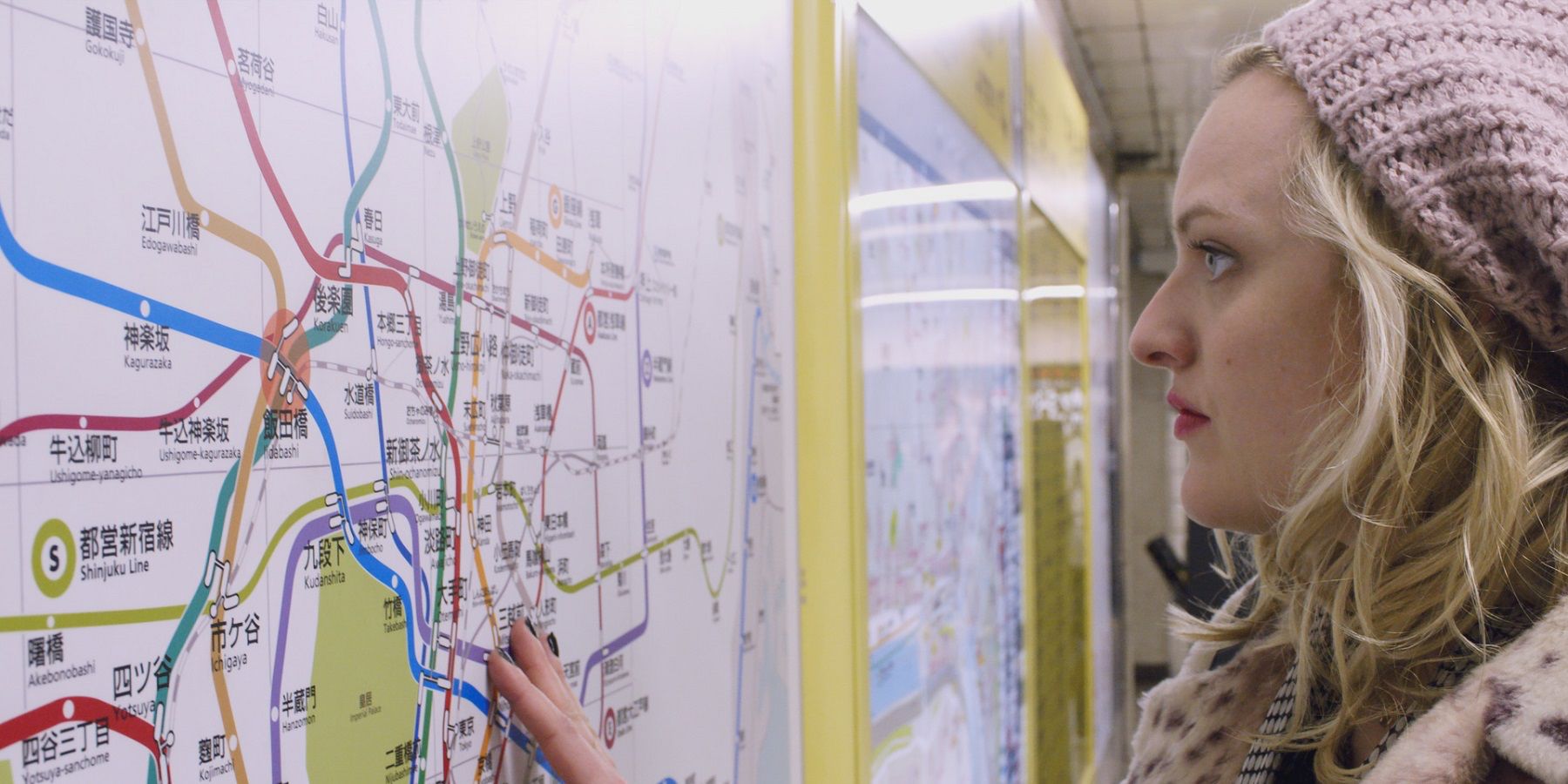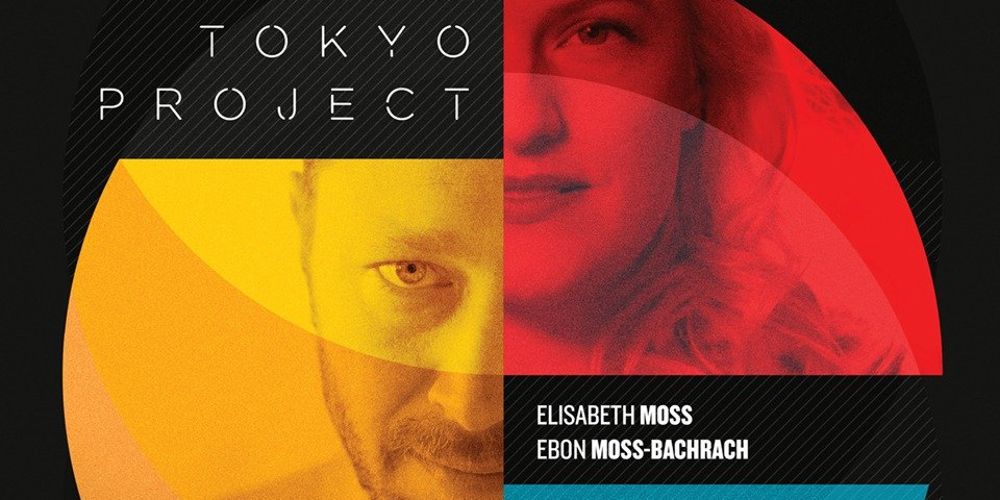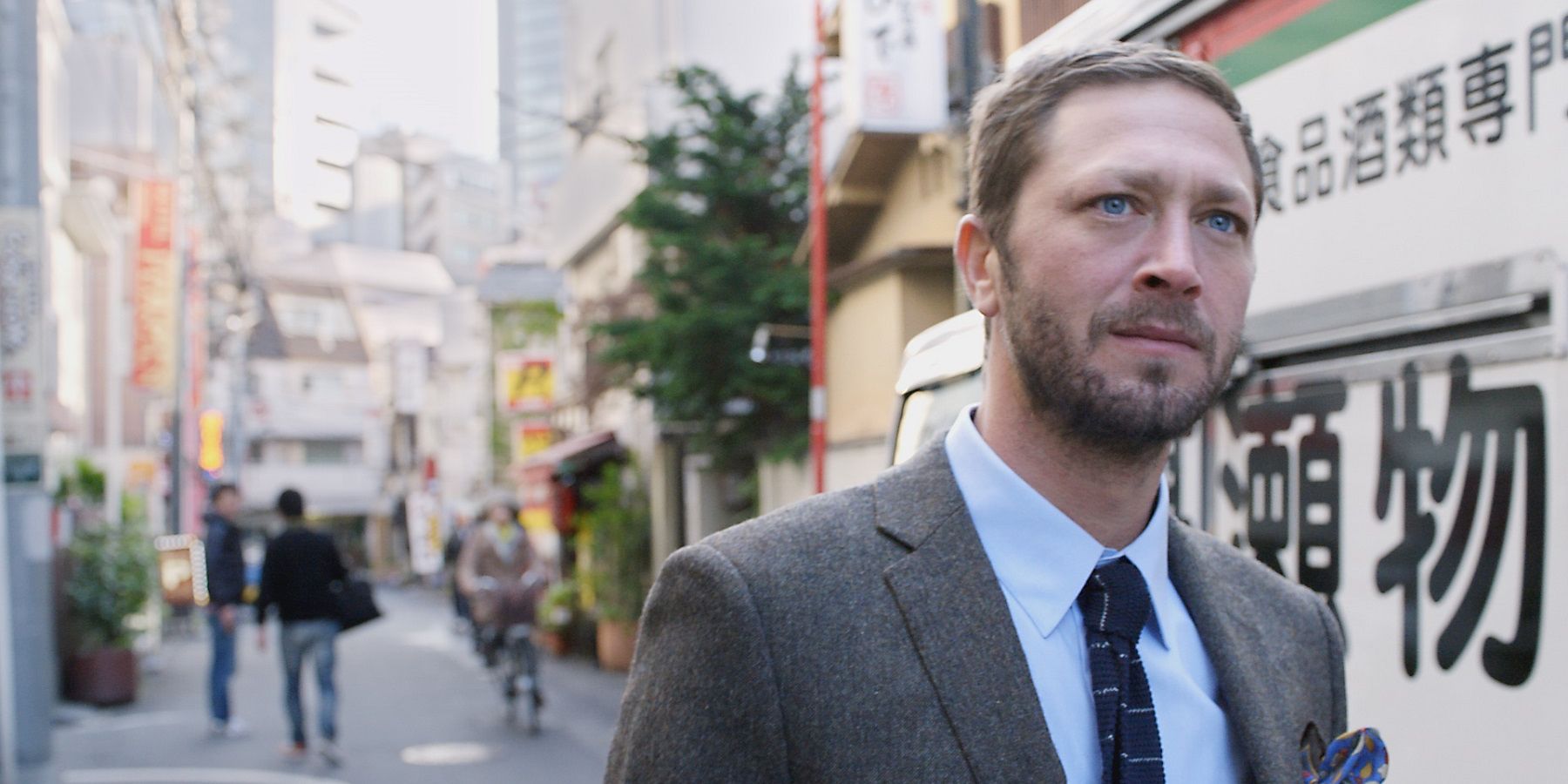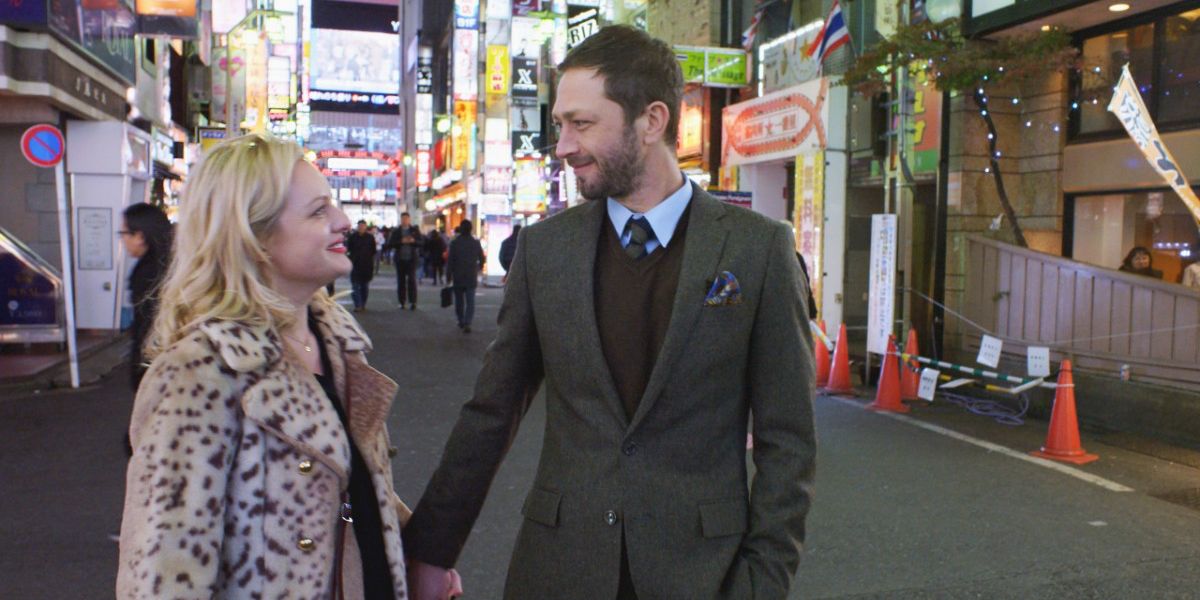In October, HBO premiered the short film Tokyo Project from writer and director Richard Shepard, who was a frequent director on the premium channel's recently concluded Girls. For those who have watched it, either when it aired, or streamed it on any of HBO's various streaming options, you may have been surprised to see recent Emmy winner for The Handmaid's Tale Elisabeth Moss starring opposite former Girls and future The Punisher co-star Ebon Moss-Bachrach as a pair of Americans in Japan repeatedly running into one another in a series of perhaps not-so-coincidental encounters.
At just 30 minutes in length, Tokyo Project is a quick and worthwhile watch that, in part because of its location and melancholy narrative, is suggestive of Sophia Coppola's Lost in Translation. The film centers on Sebastian (Moss-Bachrach), who is traveling abroad on business, and whose chance encounters with a woman named Claire (Moss), first at a ramen shop and again outside a bar, are revealed to be part of something much more. In uncovering the hidden connection between them, the film explores the city of Tokyo as much as it does the mystery of its two leads, resulting in a romantic connection with a twist.
Related: Hulu is First Streaming Service to Win Outstanding Drama Series Emmy
Shepard, who, in addition to his work on Girls is an Emmy winner for directing Ugly Betty and has also written and directed the 2005 Pierce Brosnan hitman film The Matador, and the 2013 Jude Law-led Dom Hemingway. The filmmaker recently spoke with Screen Rant about Tokyo Project and how Lena Dunham helped land Moss for a starring role.
Tell me a bit about how Tokyo Project came about. When did you begin writing it and how soon after did the project fall into place?
There were a number of reasons I wanted to make the movie. I kind of wanted to shoot something in Tokyo and I wanted to write a love story. I felt that if I wrote a short film that the possibility of actually just making it quickly would be far more likely than a feature that always takes much longer. I wrote it and it sort of just poured out of me. It was a story that I wanted to tell, and I was very specific about Tokyo and places that I wanted to film in and what I wanted to show.
I asked Lena Dunham to take a look at the script and give me some notes and she did. Then she said, 'Who do you want to be in the movie?' and I said, 'Well, I would love Elisabeth Moss to do it.' Lena was like 'Let's call her," – because I guess when you're famous you can just call other famous people and they answer your phone calls. So Lena called Lizzie and she read it overnight and loved it. Asking an actor to have a one-week commitment is a lot easier than to take two months or three months to do a feature film. So Lizzie had a window of opportunity and it happened super-quickly. I basically used a residual check to pay for plane tickets and got a free camera and free editing, and asked my friends to work on it, and really just approached it like a student film.
How would you compare Tokyo Project to something like Panic in Central Park, which was a fairly self-contained episode of Girls? Do you find yourself approaching these projects in the same way?
We shot the whole short in five days. We started on a Monday and finished on a Friday. We shot one shot at the airport on Saturday of the day we were all getting on the plane to go home. But unlike a television show, first of all we didn't really have any money at all. We had like a $1,000 budget for location and $1,000 budget for art department. It was a very, very small little company made up of 12 people. We were able to be very intimate. Sometimes it was just me Lizzie, Ebon, and the cameraman in a room together. So both the making of the movie and the shooting of it formed an intimacy that I think comes through in the storytelling.
When you’re writing something like this, how often do you have to check yourself to make sure you don’t go too far with the depiction of grief, so that the story doesn’t tip over into the maudlin?
It's always a challenge how you chart that as a story. If you give too much away or the balance goes too much one way or the other, you can lose the audience. I wanted people to be intrigued by this story and the fact that there was more to it than perhaps they were seeing, but also not give it all away. Part of the idea is we meet Ebon and it's clear he's gone through some sort of personal tragedy that we also learn is the loss of a child, but he's dealing with it in a way that this trip is a break to finally reset himself. Which is what I was interested in doing, I wasn't interested in the first few months of a tragedy. You really can re-invent yourself when you travel and see yourself in a different way. You can almost be a better version of yourself.
Big sections of this film are purely visual storytelling. What kind of challenge does that present to you as a filmmaker? How much do you have to just let go and give in to the actor's performance?
Ultimately, when an actor inhabits a character they take it away from you and you're there to help guide them. But they're leading the way. Lizzie is one of those very rare actors who can, tell a story through just the way she looks, just with her eyes; you can understand what she's thinking. It is a very rare gift. You can usually understand when an actor is happy or sad or whatever their emotion is, but when you see an actual transformation and thought process in the eyes, that is a rare thing that only the best actors have. And she does. You can actually look at her and see what she's thinking. It is an incredible gift she has, and so in a way it allows some of the mysteries to play out. You look at it a second time and see she's really dealing with all the other stuff that her character's going through.
The film is fairly open ended. How does the format of a short film influence the way you reach a conclusion like that? Is there more freedom in the way you handle resolution because you’re working on a short as opposed to a 90-minute or two-hour film?
You don't have the weight or pressure of two hours of an audience's commitment that you then try to wrap up in a neat bow or not. For me, the movie ends in a sad way, but then it also offers a bit of optimism. It offers this idea that life is full of many chapters and it doesn't mean once you've closed one chapter out that you can't return to it in some way. And I didn’t want to have a happy ending in quotes, but I just liked the characters and I was just sort of rooting for them. I didn't have the ending when I first wrote it; I sort of ended it on a sadder note. But the ending kind of came to me as I was wrapping the movie and I thought it would be an interesting twist and also a way of signaling that you can't just take defeat, that you can try to rewrite your life if possible and why not try to rewrite your life? So that was sort of the intention of it. I was really happy with it. It feels earned.
Next: The Punisher: Netflix’s Microchip Is ‘A Departure’ From The Comics Character
Tokyo Project is currently available on HBO GO and HBO Now.
Photos: HBO




